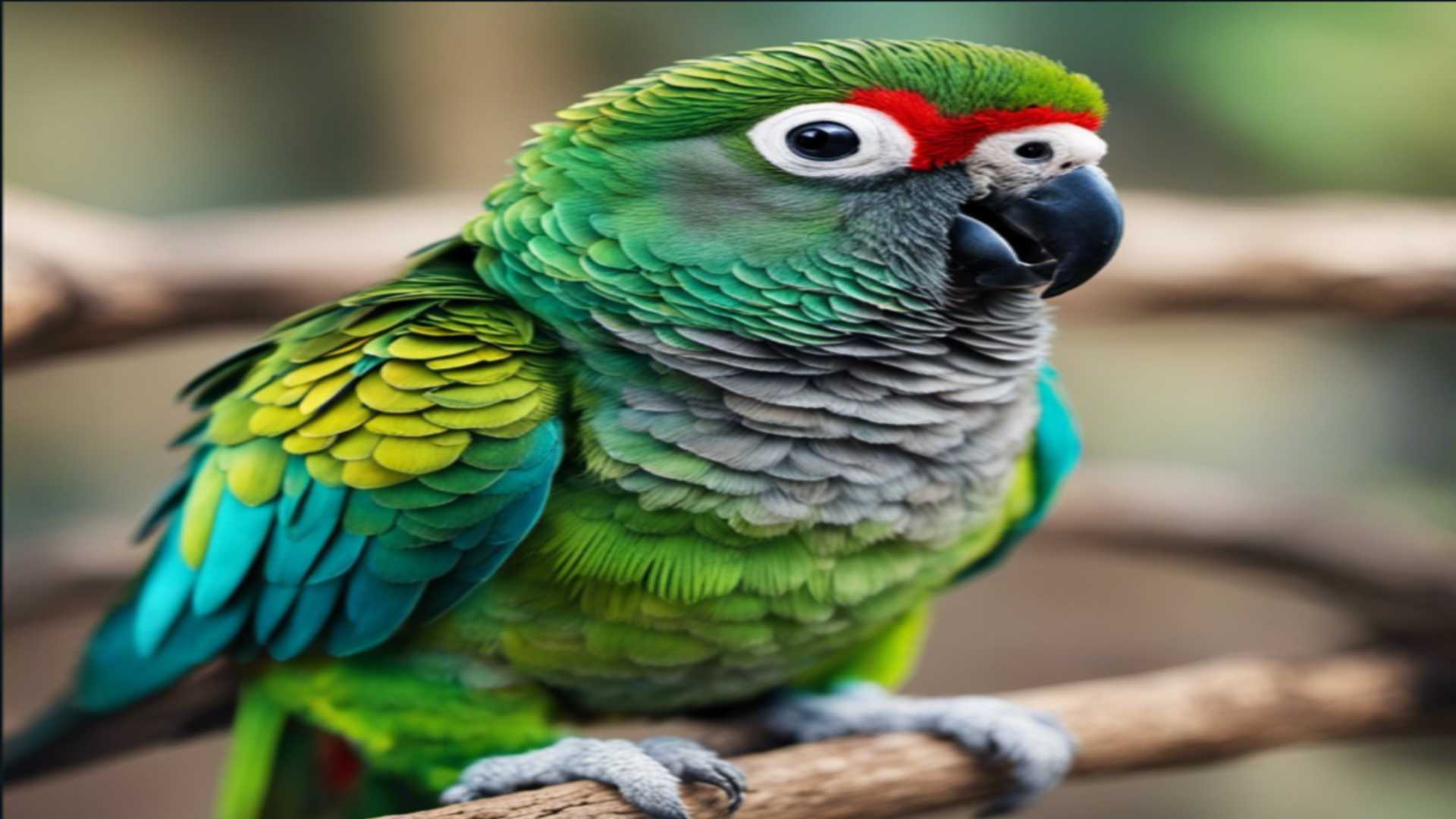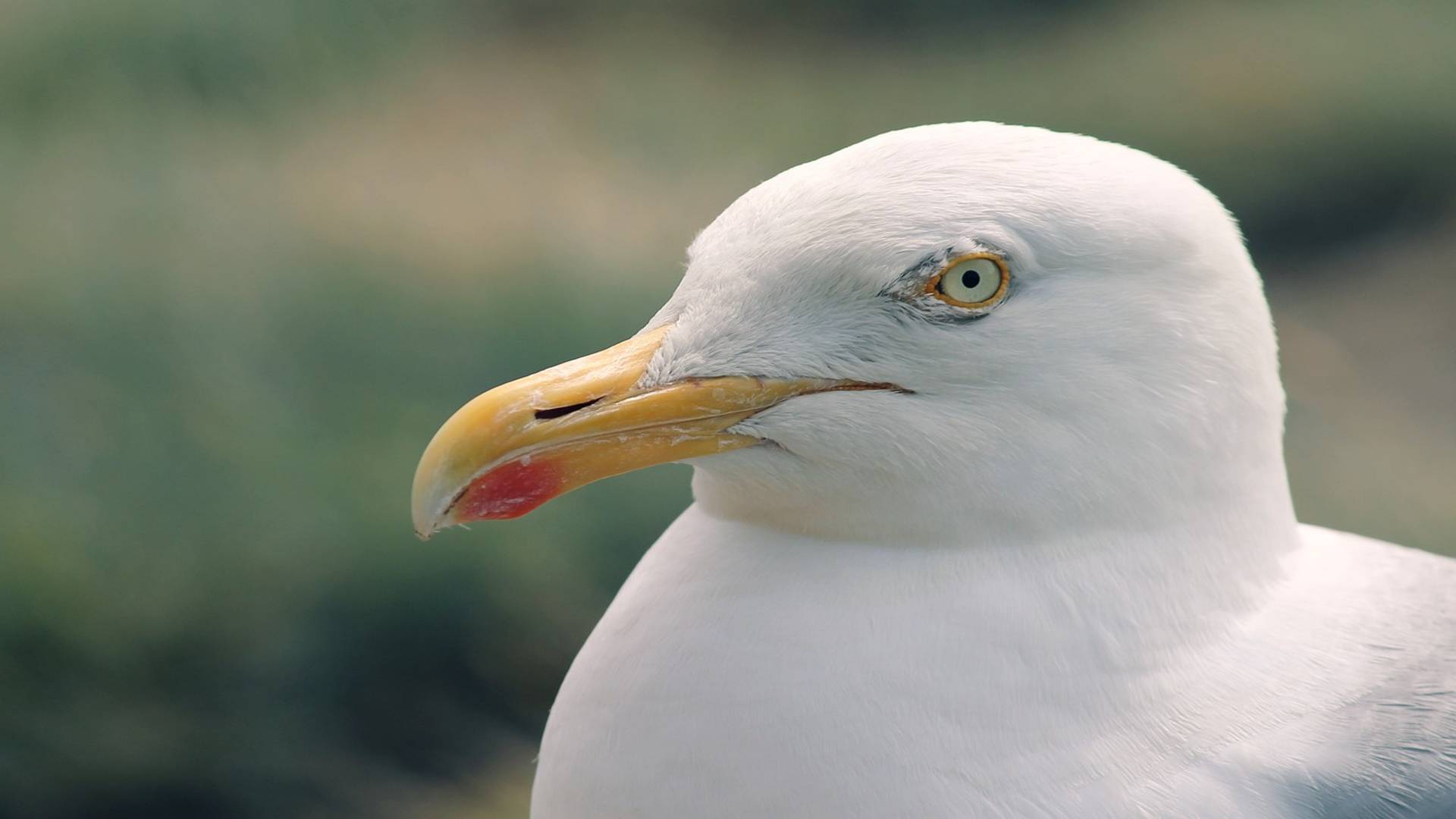As a pet owner, it’s important to understand your furry or feathered friend’s sleeping habits. If you’re a cockatiel owner, have you ever wondered how your bird sleeps? Do they sleep through the night like humans, or do they have a different sleeping pattern?
Cockatiels have a unique way of sleeping, where they tuck their heads under their wings and rest on one foot. This position helps them conserve body heat and feel secure.
In this ultimate guide, we will explore everything you need to know about how cockatiels sleep. From their natural sleep patterns in the wild to how to create a cozy sleeping spot for your pet cockatiel at home, we’ve got you covered.
So, let’s dive in and learn more about these fascinating birds and their sleep habits.
Short summary
We have prepared a brief list of key points for you to remember before moving on to the article’s main content.
- Cockatiels have a unique sleeping position where they tuck their heads under their wings and rest on one foot.
- Creating an ideal sleeping environment for your pet cockatiel is crucial for their health and well-being.
- Monitoring your cockatiel’s sleep quality and maintaining a healthy sleep schedule is essential for their overall health.
How do cockatiels sleep: Overview
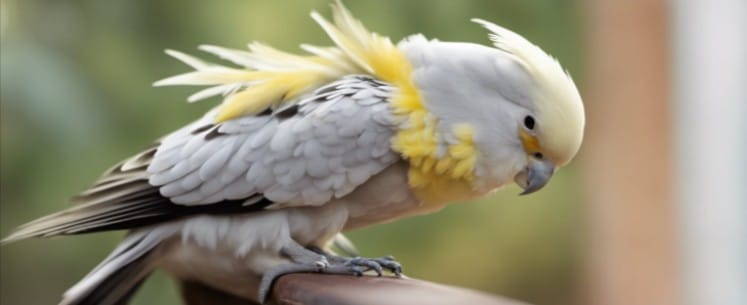
Cockatiels, like most birds, have a unique physiological adaptation that allows them to sleep while standing up. Their legs have specialized tendons, called flexor tendons, that automatically grip onto a perch when they bend their legs.
This tendon-lock mechanism is activated when the cockatiel’s leg is in a slightly bent position. The flexor tendon runs through a hook-like structure called the tibiotarsal pulley, which securely holds the bird’s toes around the perch.
This provides stability and prevents the bird from falling off the perch while sleeping.
Sleeping while standing up has a few advantages for cockatiels:
- Safety. Perching on a high, narrow branch provides a safer sleeping spot from predators on the ground.
- Energy conservation. The tendon-lock mechanism requires minimal muscular effort, allowing the bird to save energy and reduce the need for constant muscle contractions.
- Quick flight response. Being in a standing position allows the bird to quickly take flight if it feels threatened, without the need to transition from lying down.
Finally, it’s interesting to note that when cockatiels sleep, they often tuck one foot up into their belly feathers. This behavior helps them to maintain body heat and provides additional comfort while resting.
Read also: Can Cockatiels Sleep With Noises? Are They Noise Sensitive?
What are the different sleeping positions?
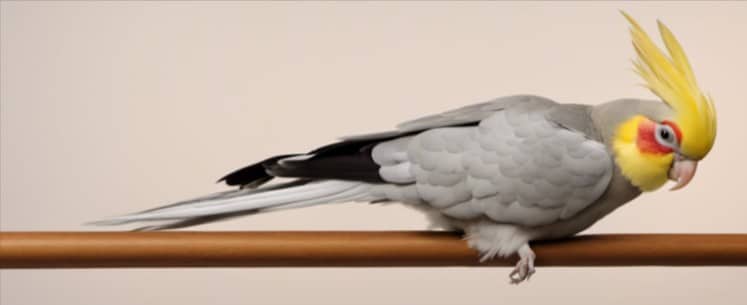
Cockatiels can sleep in a variety of positions, and these positions can indicate different things about their health and well-being. Here are some of the most common sleeping positions:
1. With the head down
One common sleeping position for cockatiels is with their head down, which indicates that the bird is sleeping deeply and comfortably. This position is a sign that the bird is feeling relaxed and content.
2. At the bottom of the cage
Another sleeping position that cockatiels may adopt is at the bottom of the cage. This can be a sign of illness or stress, so it’s important to monitor your bird’s behavior if you notice them sleeping on the cage floor.
If you notice any other concerning symptoms, it’s essential to consult with an avian veterinarian.
3. In the food bowl
It’s not uncommon for cockatiels to sleep in their food bowl, but it’s vital to ensure that they have a separate area for eating and sleeping to avoid any potential health issues.
Sleeping in the food bowl can also be a sign of boredom or lack of stimulation, so it’s essential to provide your bird with plenty of toys and activities to keep them entertained.
4. With the crest up
Some cockatiels may sleep with their crest up, which is a sign of relaxation and contentment. This position indicates that the bird is feeling calm and comfortable in their environment.
When do cockatiels sleep?
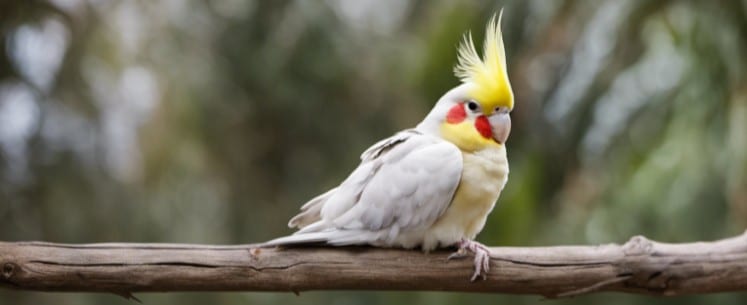
The exact timing of their sleep can vary depending on their environment and daily routine. It’s important to provide your cockatiel with a quiet and dark environment for sleeping to ensure they get the rest they need.
Additionally, establishing a consistent sleep schedule for your bird can help them maintain a healthy sleep routine.
How do cockatiels sleep in the wild?
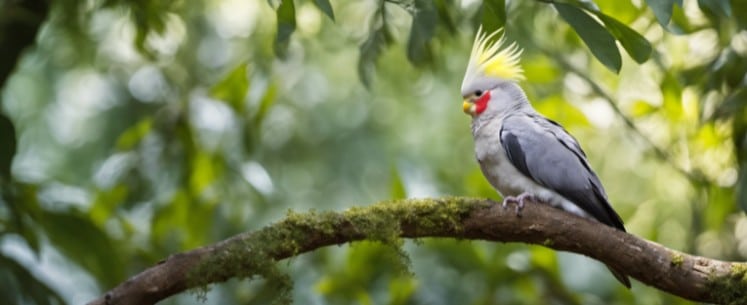
In their natural habitat, cockatiels are native to the Australian continent, specifically to the arid and semi-arid regions. When it comes to sleeping in the wild, these birds have adapted to their environment and follow specific patterns to ensure their safety and well-being.
Firstly, cockatiels are social creatures, and they usually sleep in flocks. By roosting together in trees, they are able to keep warm and maintain a sense of security.
The presence of other birds provides a better chance of detecting predators, allowing them to react quickly when faced with danger.
Another trait observed in wild cockatiels is their preference for sleeping in elevated places. When selecting their roosting spot for the night, they tend to choose higher branches of trees, making it more difficult for ground-based predators to approach them.
Lastly, wild cockatiels are diurnal animals, meaning they are active during the day and sleep at night. As the sun begins to set, these birds instinctively seek out their designated sleeping area to settle in for the night.
They require around 10-12 hours of sleep to maintain their health and energy levels.
Cockatiel sleep patterns
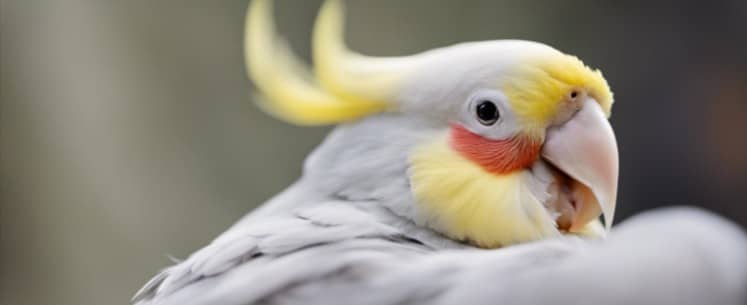
Cockatiels, like most birds, have unique sleep patterns that are different from other birds, such as the owl. They are diurnal, which means they are active during the day and sleep at night.
However, they do not have a continuous sleep cycle like humans. Cockatiels will take short naps throughout the day, with longer periods of sleep at night. They also have the ability to sleep with one eye open, which allows them to remain alert to their surroundings and potential threats.
Nocturnal vs. diurnal
Cockatiels are diurnal birds, which means they are active during the day and sleep at night. They have different sleep patterns compared to nocturnal birds like owls. Their internal clock is aligned with the natural daylight hours to ensure they get enough restorative sleep.
How much sleep do cockatiels need?
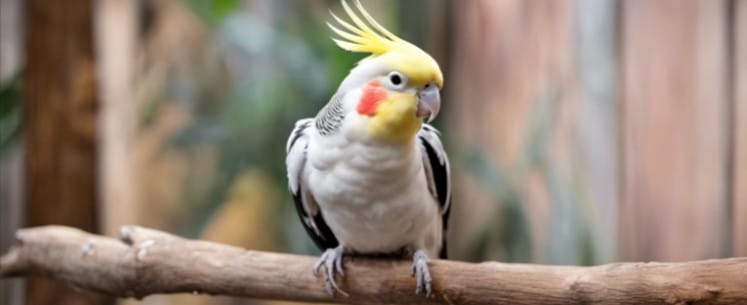
Cockatiels require a minimum of 10-12 hours of sleep per night to remain active, alert, and engaged during the day. Just like humans, birds need restful sleep to maintain their physical and mental health.
Providing a quiet and dark environment for your bird to sleep in can help ensure they get the rest they need. This means avoiding loud noises, bright lights, and other distractions that may disrupt their sleep.
Establishing a consistent sleep schedule for your bird can also help them maintain a healthy sleep routine. Try to create a regular sleep routine for your cockatiel by providing a consistent bedtime and wake-up time each day.
This can help your bird feel more secure and comfortable in their environment and can also help them feel more relaxed and content throughout the day.
| Age | Average Sleep Duration |
|---|---|
| Young (less than 1 year) | 12-14 hours |
| Adult (1-8 years) | 10-12 hours |
| Senior (8+ years) | 10-12 hours, may require longer rest periods |
While cockatiels do need quality sleep, they are also social creatures. It’s important to provide them with ample time for social interaction and physical exercise during their awake hours to help maintain their overall health and happiness.
Creating an ideal sleeping environment
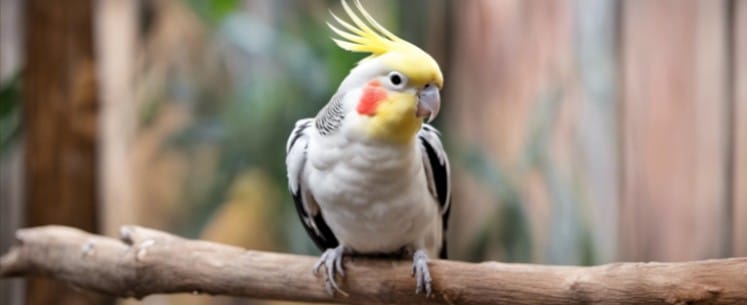
Creating a proper sleeping environment for your bird pet is essential to overall sleep quality. Let’s see how you can improve its sleeping space:
Cage placement
Choosing the proper location for your cockatiel’s cage plays a significant role in ensuring a good night’s sleep. Place the cage in a quiet area, away from high traffic or loud noises.
Avoid placing it near windows or doors, where drafts and temperature fluctuations may occur. Position the cage at a comfortable height, ideally at eye level, so your bird feels secure while resting.
Temperature and humidity
Balance the room temperature and humidity to keep your cockatiel comfortable during sleep. Maintain a temperature range between 65-75°F (18-24°C) and humidity levels around 50-70%.
To monitor these parameters, use a thermometer and hygrometer in the room or near the cage. This will help ensure your bird’s well-being and prevent any health issues.
Covering the cage
Covering the cage at night helps provide a sense of security and reduces disturbances, such as light or shadows. Choose a breathable and dark-colored fabric that allows for sufficient air circulation.
Drape the material over the cage, leaving one side open for proper ventilation. Ensure the cover is securely attached to prevent your bird from pulling it down during the night.
Monitoring sleep quality
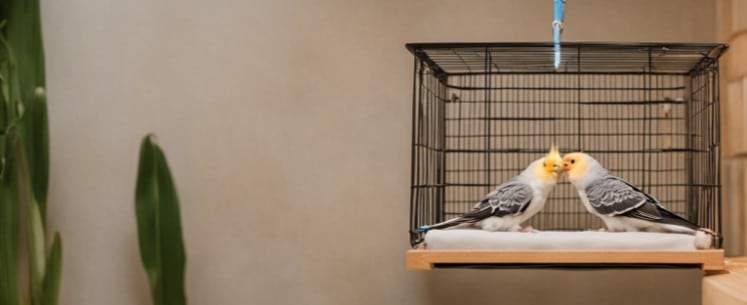
Ensuring that your cockatiel gets quality sleep is essential for their overall health and well-being. In this section, we will discuss how to recognize sleep problems and common sleep disruptions that may affect your pet bird.
Recognizing sleep problems
Keep an eye on your cockatiel’s sleeping patterns and look for any unusual behaviors, such as:
- Loud and frequent nighttime vocalizations
- Restlessness or difficulty settling down to sleep
- Waking up multiple times during the night
- Excessive sleepiness during the day
If you notice any of these symptoms, it may indicate a sleep problem that requires further investigation and potential intervention.
Common sleep disruptions
There are several factors that can negatively affect your cockatiel’s sleep quality, including:
| Disruption | Description |
|---|---|
| Noise | Loud noises, such as household appliances or television, can startle cockatiels and disrupt their sleep. |
| Light | Loud noises like household appliances or television can startle cockatiels and disrupt their sleep. |
| Temperature | Extreme temperature changes in the environment can cause discomfort and disturb your cockatiel’s rest. |
| Stress | Changes in the environment, such as moving to a new cage or a new addition to the household, can cause stress for your bird and affect their sleep. |
Identifying and addressing these disruptions can significantly improve your cockatiel’s sleep quality and overall well-being.
Tips for a healthy sleep schedule
Providing a comfortable and consistent sleep environment can greatly improve your cockatiel’s overall health and well-being. Here are some tips to help your feathered friend get a good night’s sleep:
- Maintain a consistent sleep schedule by putting your cockatiel to bed at the same time each night and waking them up at the same time each morning. Cockatiels typically need 10-12 hours of sleep per night.
- Provide a quiet and dark space for your cockatiel during their sleep time. Consider covering their cage with a light, breathable fabric to reduce ambient noise and light.
- Keep the cage clean and comfortable. Ensure your cockatiel’s cage is large enough for them to comfortably move around and include soft perches to rest on.
- Monitor temperature and humidity to ensure a pleasant sleeping environment. Keep the temperature between 65-75°F (18-24°C) and humidity levels around 50-60%.
Conclusion
Cockatiels are fascinating birds with unique sleeping habits. They are diurnal birds, active during the day and sleep at night. Understanding these sleeping positions and creating an ideal sleeping environment for your cockatiel can help ensure they get the rest they need to stay healthy and happy.
So, if you care about your fathered friend, pay attention to their sleeping habits and provide them with a comfortable and safe sleeping space.
Thanks for reading, and have a great day!
Want to learn more about cockatiels?
Ready to boost your knowledge to the next level? If so, check out the articles below:
- Should Cockatiels Be Kept in Pairs? (Explained)
- Why is My Cockatiel Chirping Nonstop? (Explained)
- Can a Sun Conure Breed With a Cockatiel? (Explained for Beginners)




